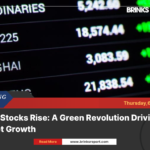Sajjan Jindal, the chairman of JSW Group, has expressed doubts about Tesla’s success in India. Instead, he supports homegrown companies like Tata Motors and Mahindra & Mahindra. Jindal believes that Tesla will face many challenges in India, mainly due to high import taxes and the country’s complex market conditions. His comments have started a discussion about whether foreign companies can compete with local EV manufacturers like Tata and Mahindra.
Why India is a Tough Market for Tesla
India is a difficult market for foreign carmakers, and electric vehicles (EVs) are no exception. Tesla’s CEO, Elon Musk, has shown interest in launching Tesla in India, possibly by setting up a factory. However, Jindal thinks the company will struggle because of high import taxes. Currently, India imposes import duties ranging from 60% to 100% on fully built EVs, making them very expensive for Indian buyers. This makes it hard for Tesla to compete with local brands like Tata and Mahindra, which manufacture their cars in India and sell them at lower prices.
Indian Buyers Prefer Affordable and Practical Cars
Jindal also pointed out that Indian consumers have different preferences compared to buyers in Western countries. While Tesla is famous for its advanced technology and premium brand image, Indian buyers mainly look for affordability, durability, and practicality. Local companies like Tata and Mahindra understand these needs well and design their EVs accordingly.
For example, Tata’s Nexon EV and Mahindra’s XUV400 are popular because they are reasonably priced and built for Indian roads and weather conditions. In contrast, Tesla’s Model 3, when imported, could cost over ₹30 lakh ($37,500), while the Tata Nexon EV is priced at around ₹14 lakh ($17,500). This large price gap makes it difficult for Tesla to attract price-sensitive Indian consumers.
Government Policies Favor Local Manufacturers
Another major challenge for Tesla is India’s push for local manufacturing. The government’s “Make in India” initiative encourages companies to set up factories in the country, reducing dependence on imports and creating jobs. Tata and Mahindra have already invested heavily in local production and have strong supply chains, giving them an advantage over foreign companies.
In addition, India has policies like the FAME (Faster Adoption and Manufacturing of Electric Vehicles) scheme, which provides subsidies and benefits to EVs made in India. These policies make it easier for Tata and Mahindra to keep their prices competitive, while Tesla would struggle without local production.
Read More: Tesla Opens a Showroom in Mumbai, Paying ₹35 Lakh Rent Monthly
Conclusion
While Elon Musk is eager to bring Tesla to India, the road ahead is tough. High import taxes, competition from local giants like Tata and Mahindra, and government policies favoring domestic manufacturers create big hurdles. Sajjan Jindal’s skepticism about Tesla’s success in India seems reasonable given these challenges. However, if Tesla finds a way to manufacture cars locally and adapt to Indian market conditions, it may still have a chance to succeed.




